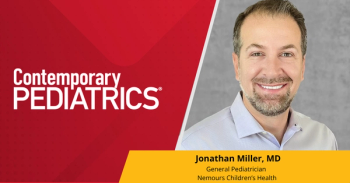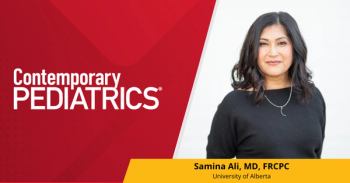
- Vol 36 No 6
- Volume 36
- Issue 6
Developmental screening via phone increases referrals
Young children whose parents are screened via telephone about their offspring’s development are far more likely to be referred for evaluation and to receive services than children who receive usual care from their primary care provider (PCP), a randomized trial involving 152 youngsters found.
Young children whose parents are screened via telephone about their offspring’s development are far more likely to be referred for evaluation and to receive services than children who receive usual care from their primary care provider (PCP), a randomized trial involving 152 youngsters found.
Included in the study were children aged from 12 to 42 months who received well-child care at a community health center that primarily serves Hispanic families. Half the group received usual care while the parents of the other half (intervention group) were connected with a trained care coordinator who conducted developmental screening over the phone, using the Parental Evaluation of Development Status Online system. The coordinators were part of a Los Angeles County program (211LA) to detect and address early childhood developmental and behavioral concerns among families who call 2-1-1, a national telephone access number for connecting people to local health and human services.
Based on their assessment of developmental risk during the phone call, the care coordinators made referrals to intervention services and followed up with the families, usually about 15, 30, and 60 days after initial contact, to assist with connecting to evaluations and services. Coordinators also connected families with other services, such as transportation, housing, food, and utility assistance to address any barriers to getting help.
After 6 months, significantly more children in the intervention group than those receiving usual care were referred (32% vs 9%) and were receiving more services (16% vs 1%). These differences between the 2 groups remained even after adjustment for age, sex, and primary language.
To get a better handle on relevant “usual care” at the health center, investigators reviewed the medical records of 142 other children aged from 12 to 42 months who had well-child care during the 6 months before the study started. The review showed that although almost all children had documented developmental surveillance, only 4% had been screened using a structured, validated screening tool (Nelson BB, et al. Pediatrics. 2019;143(4):e20181064).
Thoughts from Dr Burke
I confess to a bit of regret that this process, bypassing the child’s doctor, is more effective in screening and completing referral for development concerns. However, the results, at least in this setting, are impressive and show a real benefit to these children. If this project is taken to scale, I hope that the child’s physician is kept in the loop when the screen is abnormal and after referral and evaluation are complete. These patients and their families will need an ally in dealing with the developmental conditions that are identified.
Articles in this issue
over 6 years ago
Older fathers linked to problems with pregnancies, birthsover 6 years ago
Early paternal bonds impact offspring’s cardiovascular healthover 6 years ago
Paternal involvement boosts infants’ neurodevelopmentover 6 years ago
Fathers’ obesity might impact offspring’s healthover 6 years ago
Fathers’ epigenome affects reproductive healthover 6 years ago
Fuzzy brown spots on a healthy 3-year-oldover 6 years ago
Urine drug screens: Caveats for interpreting resultsover 6 years ago
Recognize & Refer: Turner syndromeover 6 years ago
Riddle me this: The making of a bullyover 6 years ago
How to identify and treat bullyingNewsletter
Access practical, evidence-based guidance to support better care for our youngest patients. Join our email list for the latest clinical updates.








